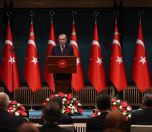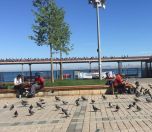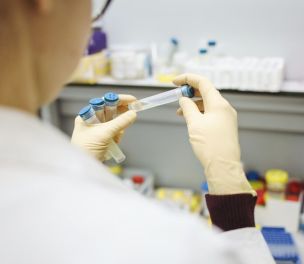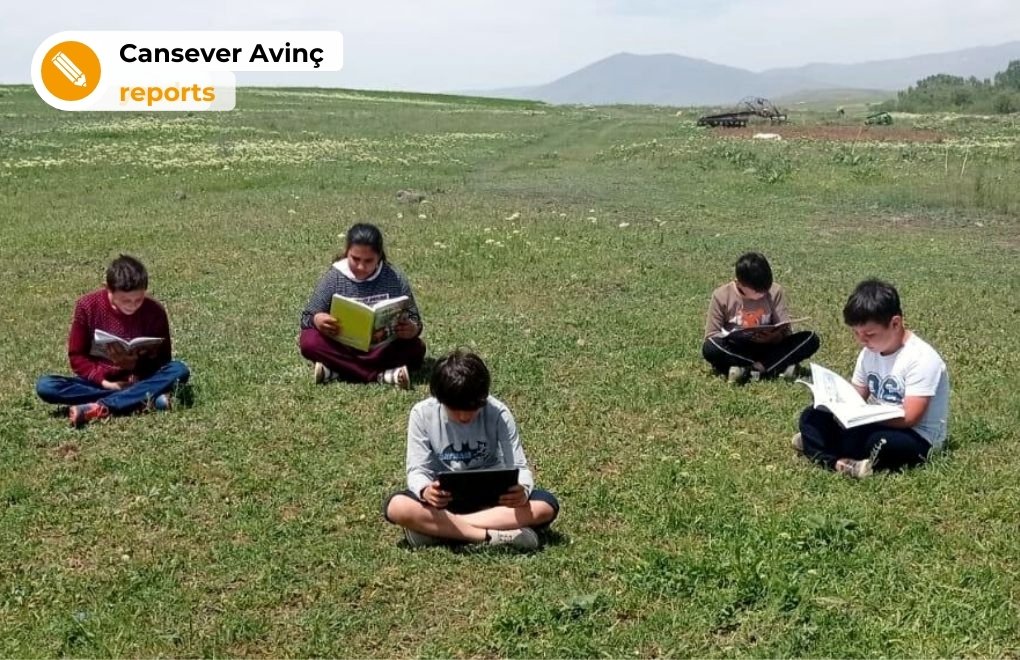* Photo: Pixabay
Click to read the article in Turkish
According to the Health Ministry data, 46,034,689 novel coronavirus (COVID-19) vaccines were administered in Turkey as of June 25. Only 14,752,300 of these over 46 million doses were the second dose.
Even though the Ministry has decreased the vaccine eligibility age, vaccination rates have remained low in some cities. When the Ministry's vaccination map is closely observed, it is seen that the number of vaccinated people is especially low in the Kurdish-majority cities.
For instance, as of June 25, the number of vaccine shots given in Diyarbakır, where nearly 2 million people live, was 433,403. Only 133,635 of them were the second dose. Similarly, in Mardin, where 854,716 people live, 53,206 second doses were administered to citizens.
Urfa is among the cities with the lowest vaccination rates. While over 2 million people live in the southeastern city, the number of people who received the second dose was only 108,971.
Within this context, we have spoken with the Chairs of Urfa Medical Chamber, Mardin Medical Chamber and Diyarbakır Medical Chamber regarding the reason why the vaccination rates in Turkey's Kurdish-majority cities are lower than those in the rest of the country.
'Healthcare in mother language: Most basic right'
Diyarbakır Medical Chamber Chair Elif Turan refers to the Health Ministry data and reminds us that the vaccination rate in the city is 11 percent. Turan briefly says the following about the issue:
"The fact that the Health Ministry has been unable to build public trust in vaccines since the beginning of the pandemic and the failure to manage the pandemic transparently have an effect on vaccination.
"As people are not told that 'these are the protective effects of the vaccines and these are its sickening effects', they are confused.
"There is no serious anti-vaccination in Diyarbakır, but there is hesitancy. We receive so many calls about this; when people see us on the street, they ask, 'Should we get vaccinated? What do you recommend?' When we talk to them about this, they are convinced and get vaccinated.
"Moreover, though the official language is Turkish, the mother language of the region is Kurdish. The majority of the population aged 65 and over can only speak their mother language. People have not been told about the importance of vaccination in their mother language. If you want someone to do something, you should first tell him or her about its importance.
"The failure to do this has triggered vaccine hesitancy among people. Healthcare and accessing this healthcare in one's own mother language are the most fundamental rights. However, it is not ensured."
'Language, socioeconomic conditions, education'
Urfa Medical Chamber Chair Osman Yüksekyayla says that 8 percent of Urfa's population have been vaccinated with the second dose. According to the Ministry, Urfa ranks 79th among 81 cities in that regard:
"The demand for vaccination has recently increased a little as the number of vaccines has increased and the eligibility age has been dropped to 40. But Urfa is still too far behind the Turkey average.
"What needs to be highlighted here is that there are no efforts to eliminate vaccine hesitancy, rather than anti-vaccination. There is no ongoing vaccination campaign in Urfa. Vaccine hesitancy stems from the vaccination policy of the Health Ministry. It has tired people out with postponements like 'It will be delivered tomorrow, come tomorrow.'
"Especially the ones living in the rurals have been unable to get appointments, which has extremely decreased the participation in vaccination.
"Urfa ranks low in terms of success in university exams and access to healthcare. Though it is not at the bottom of the socio-economic and socio-cultural rankings, it still cannot be considered independently of the fact that it is among the last cities in terms of participation in vaccination. There is a regional inequality going on and the rate of vaccination is a result of this.
"Moreover, when you consider the aged population, most of them are Kurds, Arabs and Zazas and they speak Kurdish, Arabic and Zazaki. They don't know Turkish. But people are not called on in their mother languages to get vaccinated. They have never been told in their mother languages what the vaccine is. Taken together, we end up with such a rate."
'Insufficient vaccination services in the rural'
Mardin Medical Chamber Chair Volkan Binbaş says that vaccination has been proceeding slowly in Mardin since the beginning. The rate of the people who have received both doses is 5.82 percent while around 10 percent of the population have received the first dose. Binbaş says:
"There is a perception that anti-vaccination is higher among the people who have a low socio-economic status and cultural background and high religious sensibilities; however, there is also vaccine hesitancy among the middle class and the people with a high education level.
"Anti-vaccination has become a trend. It is the case not only in Turkey, but in Europe and several states of the US as well. In fact, in some places, they distribute money to people to encourage them.
"Anti-vaccination is higher in the Kurdish-majority cities than the west of Turkey. One of the reasons behind this is that there are no vaccination campaigns in the mother language. The level of culture and education, unequal development, being otherized and the low level of awareness lead to anti-vaccination in Mardin.
"Moreover, vaccination services are insufficient in the rural areas. For instance, in one of the villages where I work, we, together with a nurse, went to the houses of the people aged 65 and over to give them the second shots. The teams of the Health Directorate apparently administered the first dose, but did not go there again after that. If we had not done it, most of them would have perhaps not received the second dose.
"It first falls to the state's local health authorities, then to the professional medical organizations to eliminate anti-vaccination and vaccine hesitancy and to convince people." (CA/SO/SD)




.jpg)





